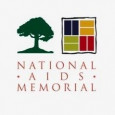Louisiana has the fourth highest HIV diagnoses rates in the country, so beginning on Feb. 7, National Black HIV/AIDS Awareness Day, sections of the AIDS Memorial Quilt honoring Black and Brown lives lost to HIV and AIDS will travel to the state as part of Change the Pattern, a national campaign to end HIV in Black, Brown, and LGBTQ+ communities across the Southern United States.
The AIDS Memorial Quilt
Feb. 7 -11, the National AIDS Memorial, Southern AIDS Coalition (SAC), and Gilead Sciences will showcase two major displays of the AIDS Quilt at two HBCU campuses -- Dillard University in New Orleans and Southern University & A&M College in Baton Rouge.
The five-day AIDS Quilt displays, taking place during Black History Month, are free to the public and include quilting workshops, educational forums, and student events. For more information about Quilt locations, event times, and special programming, visit changethepattern.org/LA.
Click below to open a slideshow of photos from some of the events.
“We are so honored to partner with these two distinguished HBCUs to bring the AIDS Memorial Quilt to Louisiana during Black History Month. The Black community faces systemic struggles that we can no longer ignore, not just in the fight to end HIV, but across numerous health and social justice issues," said Dafina Ward, Executive Director, SAC. “We will ‘change the pattern’ by having honest conversations about these issues, demanding change through our voices and raising awareness through education, and sharing our own stories without shame.”
Visitors of the AIDS Quilt displays – one of the largest ever in the state -- will see hand-stitched panels honoring Black and Brown lives lost to AIDS, many of which were made by Louisianans to honor and celebrate the stories of their friends and loved ones. Newly crafted Quilt panels recently made by residents and HBCU students will be displayed publicly for the first time, introducing the Quilt’s importance to a new generation while spreading awareness of how HIV affects lives across the South.
Among the 200 Quilt panels displayed at Dillard University are several made by actress Sheryl Lee Ralph that she created for her friends and celebrities lost to AIDS. At Southern University, nearly 175 panels will be displayed, including one sewn by Civil Rights icon Rosa Parks.
Throughout the week at both HBCU locations, students and area residents are invited to come together in fellowship and celebration for quilting workshops to make new panels for the Quilt for Louisianans who have been lost to HIV and AIDS so that their stories are forever shared and remembered within the fabric of the 54-ton national treasure. Free educational forums, movie nights, and health information will help spark conversation to reimagine the fight to end HIV/AIDS in Louisiana and reach communities that continue to be most impacted today.
“These Quilt displays, quilting workshops, and educational events are designed to raise awareness about the HIV crisis in the state that has persisted for far too long,” said Jada Harris, Quilt program manager at the National AIDS Memorial. “By sharing the stories of Louisiana and Southern lives lost to AIDS through these beautifully hand-stitched quilt panels made by Louisianans, we are introducing the importance of the Quilt and its powerful stories to a new generation to change the pattern and end HIV in our community.”
In addition to Gilead Sciences as the presenting partner, Louisiana community partners include Dillard University, Southern University and A&M College, Chevron, and Blue Cross and Blue Shield of Louisiana.
“Gilead is so proud to support this innovative program bringing sections of the Quilt to Louisiana and throughout the U.S. South as a powerful teaching tool and connector to raise greater awareness and help change these statistics,” said Dr. Shanell McGoy, senior director of Corporate Giving at Gilead Sciences. “To end the HIV/AIDS epidemic, we must examine new ways to reach and actively engage communities continually and disproportionately impacted by HIV.”
Alarming Statistics Tell the Story
Statistics show the importance of the Change the Pattern initiative in the Southern U.S. In 2020, the South comprised 38 percent of the U.S. population but represented over half of new HIV diagnoses.
The HIV epidemic continues to affect communities of color and marginalized populations disproportionately. According to AIDSVu, Louisiana ranks 4th in the nation for the highest diagnoses rates, with over 27 percent occurring in New Orleans and nearly 20% in Baton Rouge. Of those new diagnoses living with HIV in the state, 78.5% are Black or Hispanic. Nearly 60% of new HIV diagnoses are under the age of 34.
The disproportionate burden of HIV in the South is among Black women, Black and Latinx gay and bisexual men, and Black and Latinx transgender women. Louisiana, Mississippi, Texas, Georgia, South Carolina, Alabama, North Carolina, and Tennessee rank in the top 15 states with the highest rates of HIV in the country. Racism, HIV stigma, homophobia, poverty, and barriers to health care continue to drive these disparities.
About Change the Pattern
In the fight to end HIV and AIDS in the Southern U.S., the National AIDS Memorial has partnered with Southern AIDS Coalition to bring sections of the AIDS Memorial Quilt honoring Black, Brown, and LGBTQ+ lives lost to HIV and AIDS to communities throughout the region to raise awareness about the HIV crisis that persists today within communities of color and marginalized populations. Funded through a $2.4 million grant from Gilead Sciences, Change the Pattern is focused primarily on reaching communities disproportionately impacted by HIV and AIDS through free Quilt displays, quilt-making workshops, educational programming, and advocacy. Learn more at www.changethepattern.org.

Change the Pattern LA















Comments
Comments